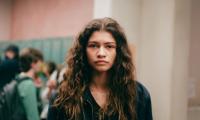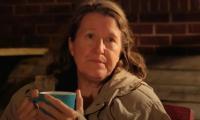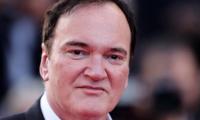Geneva: Swedish climate campaigner Greta Thunberg on Monday slammed the "tragedy" of vaccine inequity as she donated 100,000 euros ($120,000) from her foundation to the Covax scheme for global access to Covid-19 jabs.
The donation to the World Health Organisation (WHO) Foundation will support the purchase of vaccines destined for the most vulnerable populations and health workers in some of the world’s poorest countries.
"The international community must do more to address the tragedy that is vaccine inequity," 18-year-old Thunberg said. "We have the means at our disposal to correct the great imbalance that exists around the world today in the fight against Covid-19. Just as with the climate crisis, we must help those who are the most vulnerable first."
She said Covax "offers the best path forward to ensure true vaccine equity and a way out of the pandemic". Nearly 900 million doses of Covid-19 vaccines have been injected in at least 206 territories around the world, according to an AFP count.
Some 48 percent of the doses have been administered in high-income countries accounting for 16 percent of the global population. Just 0.1 percent have been administered in the 29 lowest-income countries, home to nine percent of the world’s population.
The Covax facility ensures the 92 poorest participating economies can access coronavirus jabs, with the cost covered by donors. Since the first shipment landed in Ghana on February 24, Covax has delivered more than 39 million doses to 114 participating territories.
Covax is co-led by the WHO, the Gavi vaccine alliance, and the Coalition for Epidemic Preparedness Innovations. The scheme is aiming to distribute enough doses to vaccinate up to 27 percent of the population in the 92 poorest participating economies by the end of the year.
The facility on Thursday launched a push for an extra $2 billion in donations, saying it needed the money in advance to reserve Covid vaccine doses throughout the rest of the year. Some $400 million was raised at Thursday’s opening donor conference, while Japanese Prime Minister Yoshihide Suga will host a Covax funding summit focused on the 92 countries in June. "Greta Thunberg has inspired millions of people worldwide to take action to address the climate crisis, and her strong support of vaccine equity to fight the Covid-19 pandemic yet again demonstrates her commitment to making our world a healthier, safer and fairer place for all people," said WHO chief Tedros Adhanom Ghebreyesus.
"I urge the global community to follow Greta’s example and do what they can, in support of Covax, to protect the world’s most vulnerable people from this pandemic." The WHO has consistently made the link between human health, animal health and the health of the planet during the Covid-19 pandemic.
Meanwhile, families reunited in emotional scenes on Monday as Australia and New Zealand launched a quarantine-free travel bubble that opened the border almost 400 days after its pandemic-enforced closure.
There were group hugs and enthusiastic welcomes at airport terminals on both sides of the Tasman Sea as the long-awaited bubble sparked joy and relief. Lorraine Wratt, a New Zealander stranded by the pandemic while visiting family in Australia, told AFP that travelling again was "wonderful".
"We came to Australia on December 11 to spend Christmas with our children... planning to go back in February, it’s been a bit of a nightmare," she said. On a grass embankment at the foot of Wellington Airport’s runway, the words "WELCOME WHANAU" (family) were spelled out in giant letters and Maori dancers Maori dancers performed a traditional greeting in the terminal.
New Zealand Prime Minister Jacinda Ardern said the joyful scenes were like something from a movie. "Love Actually... I imagine it’s pretty close to that," she said, referencing the 2003 British romantic comedy.
Ardern said she shared the elation, and was preparing to welcome some of her own loved ones back home. The bubble, which followed months of negotiations between the largely coronavirus-free neighbours, was hailed as a major milestone in restarting a global travel industry that has been crippled by the Covid-19 pandemic.
The arrangement means that for the first time since Covid-19 closed borders worldwide, passengers can fly between Australia and New Zealand without undergoing mandatory quarantine on arrival.
In a related development, the University of Oxford said on Monday it has launched a trial in which people who have already had Covid-19 are deliberately reinfected. The carefully controlled study will look at the kind of immune response mounted by the volunteers.
The scientists will know "exactly when the second infection occurs, and exactly how much virus they got," Helen McShane, a professor of vaccinology, said in a statement. She said the trial "may help us to design tests that can accurately predict whether people are protected" after a prior infection.
Anyone who suffers symptoms will receive the Regeneron antibody treatment used to treat Covid-19 patients. The University of Oxford’s "first-of-a-kind" tests are funded by the Wellcome Trust.
At the start of the trial, up to 64 fit and healthy volunteers aged 18 to 30 will be deliberately reinfected with the original Wuhan strain. They will be quarantined for at least 17 days in a special hospital suite, having lung and heart scans. They will then have follow-up appointments and be monitored for a year.
"This study has the potential to transform our understanding by providing high-quality data," said Shobana Balasingam, vaccines senior research advisor at Wellcome. The trial’s initial phase will look at the minimum dose that allows the virus to start replicating without symptoms in some 50 percent of volunteers.
Then in the second phase, another group of volunteers will all receive this established minimum dose. The trial comes as a London hospital has isolated a group of healthy volunteers while exposing them to the virus, in a world first.
That began in March and is being carried out in collaboration between Imperial College London and the company hVIVO at the Royal London Hospital. Those who have been infected in a controlled way are monitored to see how their illness progresses and how drugs and vaccines could work against it.
Veteran cricket journalist Sharda Ugra said the sport is used as a vehicle for a muscular nationalism
The UAE saw record rainfall with 254 mm falling in less than 24 hours in Al Ain, a city on the UAE-Oman border
Prime Minister Anthony Albanese singled Guerot out for praise on Tuesday
The bill passed a vote in Britain’s parliament with 383 in favour and 67 against
The Supreme Court has previously refused to accept two formal apologies from Ramdev and his firm’s co-founder...







